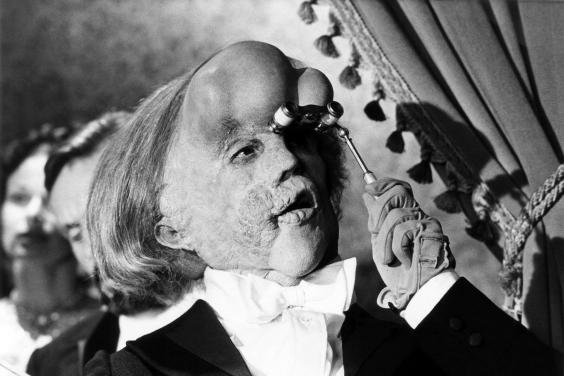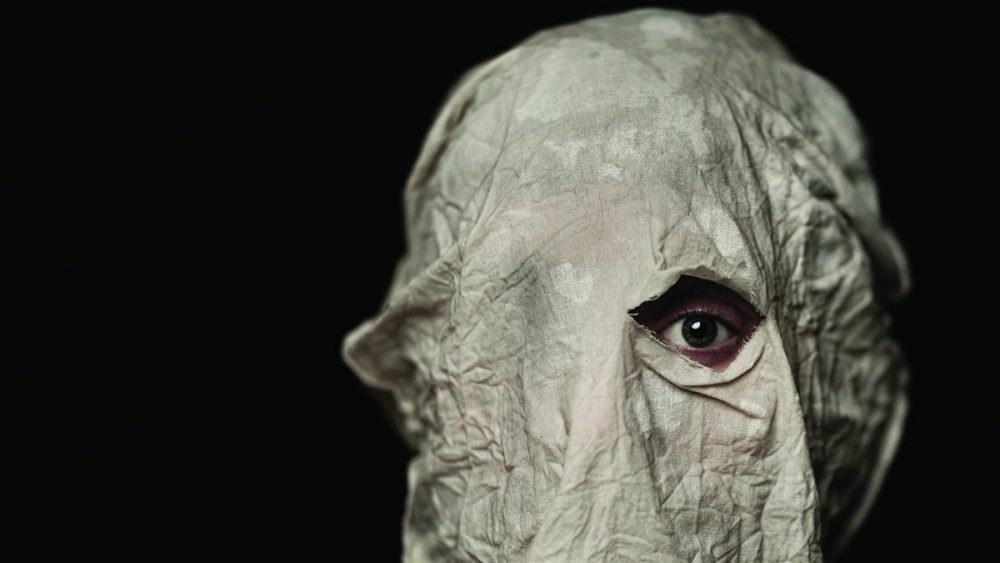Joseph Merrick’s tragic tale is well-known. His life has been reported, portrayed and depicted in film – in David Lynch’s The Elephant Man – in novels, in countless biographical works and on Broadway. Malthouse Theatre is bringing Merrick’s life to the intimate space of the theatre in a manner we have not yet seen.
“Often Merrick’s story is shown from the perspective of the Doctor, Frederic Treves. And this limits the scope of Merrick’s story, because obviously the Doctor only knew him for a certain period of time,” said Daniel Monks, who plays Merrick in the production. “In Tom Wright’s play, everything is centred around Merrick, and the play spans across his whole life. So, there’s this power to imagine what Merrick was actually like – who he was, how he grew as a person – and we get to see how he interacted with a variety of other people.”
“We’ve really tried hard to make our treatment of Joseph Merrick as three-dimensional, as human as possible.”

The Real and Imagined History of the Elephant Man is an ambitious dramatic endeavour. It is no small task to do justice to Merrick’s story in 100 minutes, a life of great hardship, turbulence and societally enforced Otherness. In Monk’s view, there was no one better to tackle this than Australian playwright Tom Wright. “Tom’s writing is so beautiful, and so precise. His writing for the play is not overtly political, but it isn’t just a take on the past. Tom breathes a sense of purpose and relevance into the play, which makes sure it still says something about our present society.”
Like the late 19th century – when Merrick was alive – our society is still stained by self-enforced divisions and an aversion to difference. As such, The Real and Imagined History of the Elephant Man strives for contemporary relevance.
This is a very personal element of the play for Monks. At the age of 11, Monks acquired impaired mobility because of surgical complications when doctors removed a tumour near his spinal cord. “We don’t see disabled people nearly enough on theatre mainstages in Australia,” Monks told me. He is hardly wrong. In my time as a theatregoer, I haven’t seen a disabled performer in a play.
Rather than being embittered by this, Monks’ outlook is optimistic: “I hope that having Emma [J Hawkins] and myself on stage will start a conversation about increasing disabled representation in Australian theatre.” Overall, there are three disabled persons involved in the production – Monks, Hawkins and Kate Hood, who is the director placement – which is unprecedented in mainstream Australian theatre.
“It has been such a pleasure to work with such talented disabled people,” said Monks. “The experience has been so exciting, and everyone has been very supportive. Matt [Lutton] has been fantastic. As a director, he is so open and receptive to our input, but he also has a very specific vision that helps us as performers feel safe. Without him, I don’t think I could play this role.”
Speaking of Hood’s impact on him, Monks said, “Kate has been like a mum to me throughout this whole process. I couldn’t overstate her importance in this production.”
Initially, Monks was weighed down by the limited expectations our society places on disabled people. “I’ve wanted to be an actor since I was very young, but after I became disabled, I began to doubt myself. I did this for many years.”
“Eventually, I thought fuck it, I love this, I love acting, so I started pursuing it.”
Monks is a multitalented artist – an actor, writer, dancer and director. He wrote and starred in Pulse, a film about a gay disabled teenager (played by Monks) who changes into the body of a woman, which was selected for Sydney Film Festival. His directing credits so far have been on short films, two of which (Charlotte and Wild Imaginings) were selected for the Palm Springs International Short Film Festival. The Real and Imagined History of the Elephant Man is his first mainstage theatre acting gig. And he could not have chosen a better play to debut in.

“Merrick’s story is sad, it’s heartbreaking,” Monks told me. “I have spent some time crying about it, because it’s such an emotional experience. That’s because you need to go to the dark places to play Merrick.”
With that said, Monks’ experience in rehearsal and pre-production was hardly gloomy: “But you also need to be joyful about it all. There was still a lot of laughter around the production, and Matt encouraged that.”
“As it’s said, comedy performances are often taken deadly seriously, and really emotional dramatic productions are lighter and fun.”
Nonetheless, getting into the skin of Merrick challenged Monks. “Becoming Joseph was, and is, very demanding. I’m honestly still in the process of it, and think I still will be during the theatrical run.” Speaking to Monks, it is very clear he wants to perfect Merrick’s character. “I’ve been dreaming of playing Merrick for two years now. He is a person who I am personally drawn to, and am just in awe that I now get to do it.”
Monks encapsulates the experience by saying, “it’s been nerve-wracking, but also so exciting and rewarding. I hope that everyone is able to personally connect with Joseph Merrick’s story, and I hope it contributes to a shift in bringing more disabled performers to the forefront of the Australian arts community.”
“Merrick has historically been played by abled actors, like John Hurt. But it’s important Joseph is played by a disabled actor, and I think he would have wanted that.”

The Real and Imagined History of the Elephant Man is showing at the Malthouse Theatre from 4 August. Tickets are available on Malthouse Theatre’s Website: http://malthousetheatre.com.au/whats-on/the-real-and-imagined-history-of-the-elephant-man
